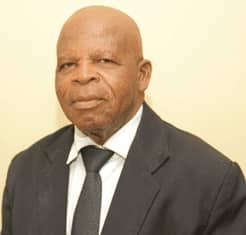The Coup in Mali versus elections in Nigeria

By Dons Eze PhD
The world has risen in unison in condemnation of what happened in Mali some few days ago, when a group of military officers arrested and detained the country’s President, Ibrahim Boubacar Keita at gunpoint, forced him to resign, and took over the reigns of power.
The 75-year-old Malian President, Keita, had been the target of weeks of mass protests, demanding his resignation over what opponents said were his failure to restore security, address corruption, and lift living standards.
As a result of that forceful change of guard in Mail, world leaders have risen in anger against the military junta, and demanded immediate restoration of democracy in that country.
Chairman of African Union (AU) and South African President, Cyril Ramaphosa, described the action of the military as “unconstitutional” and demanded the release of Mr. Keita and other top government officials. He said the AU was suspending Mali’s membership of African Union until constitutional order is restored.
In the same vein, the Economic Community of West African States (ECOWAS), in a statement, expressed “great concern” over the “seizure of power by Malian military putschists”, and said that members of ECOWAS would close land and air borders to Mali and demand sanctions against “all the putschists and their partners and collaborators”.
Similarly, the United Nations Security Council urged the mutineers to immediately release all the detained officials, including the country’s President, and asked them to “return to their barracks without delay. The Security Council “underlined the urgent need to restore rule of law and to move towards the return to constitutional order”, it said.
The European Union, the United States of America, China, and many other countries, equally condemned the military takeover in Mali.
Nigeria was not left out in condemning the action of the Malian military. Minister of Foreign Affairs, Geoffrey Onyeama, called for “immediate and unconditional restoration of constitutional order” in Mali, and welcomed the activation of the ECOWAS standby force.
President Muhammadu Buhari, even when his own house was on fire, in Southern Kaduna, in his own home state of Katsina, as well as in Borno State, did not hesitate to participate in the virtual meeting of ECOWAS heads of state and government to discuss the situation in Mali, while former President Goodluck Jonathan, who is President Buhari’s special envoy in Malian crisis, practically relocated to that country in search of ways and means of restoring peace there.
This is to underlie the seriousness with which the international community now attaches to any unorthodox method of changing governments.
While we would align ourselves with these world leaders in condemning the Malian coup, we do not, however, see any much difference between the Malian debacle and what has been going along in Nigeria in recent years, in the name of “conducting elections” to enthrone new political leaderships, which very often had gone contrary to the wishes of the people.
For instance, while the military in Mali had used force to compel the country’s President to resign to enable them take over the mantle of political leadership, those who hold the reigns of power in Nigeria also, very often, use the instruments of force to subvert the will of the people, and to impose political leaderships on them.
Specifically, most of the elections conducted recently Nigeria had witnessed violent and sordid acts, the use of force by armed security personnel, the army, the police, immigration, civil defence, and several other paramilitary organizations, on one side, and the would-be voters, holding only their voter’s cards, on the other.
In the process, those who wield the instruments of coercion used them to harass, intimidate, maim and kill many potential voters in the name of conducting elections. In other words, elections in Nigeria is another name for coup-making, a dangerous one for that matter, where armed military personnel forcefully use them to subvert the will of the people.
In the present Malian coup, we did not hear about any loss of human life when the military effected the change of government, but in virtually every “election” conducted in Nigeria, apart from the fact that people’s will have been subverted, there was usually heavy casualty in the number of people killed or injured.
We would therefore want the international community, including the United Nations, African Union, European Union, Economic Community of West African States (ECOWAS), indeed, all countries of the world, to rise in unison, as they now do in Mali, against any product of militarized elections by refusing to accord them any recognition, and insisting that they step down to enable a free and fair democratic exercise to take place.

